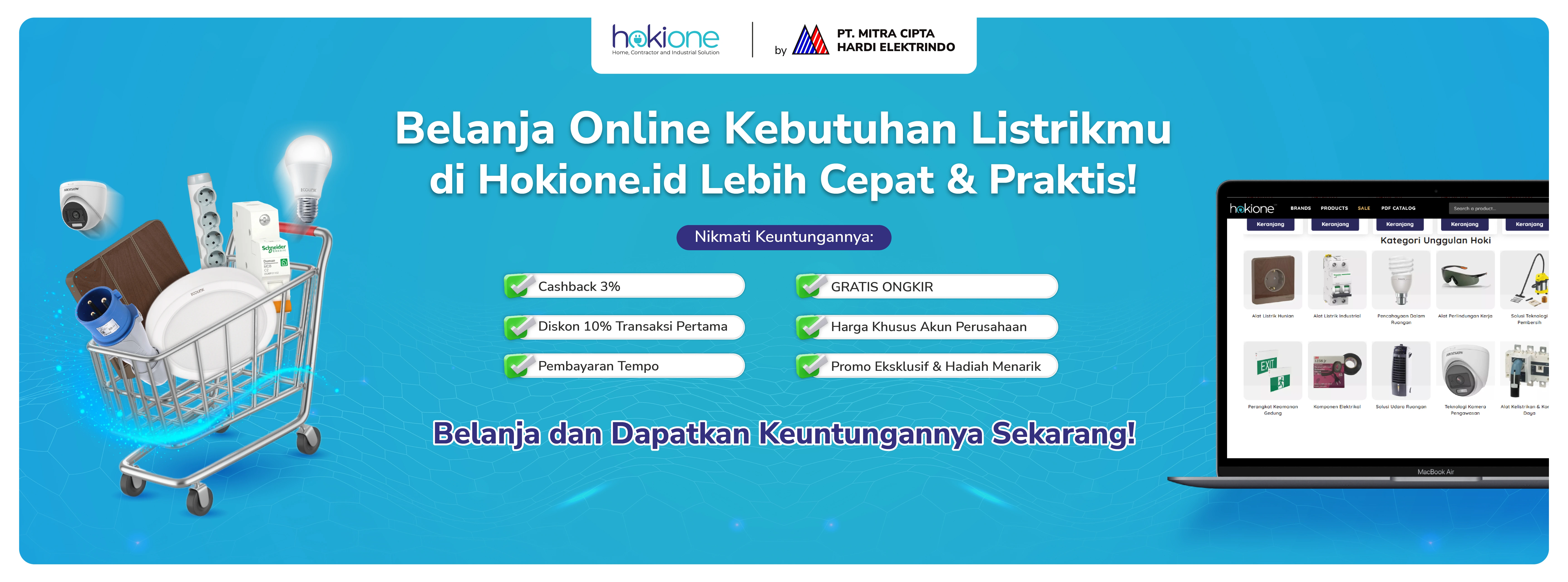Mengenal Fungsi Industrial Plug dan Socket serta Penggunaannya

Mengenal fungsi industrial plug dan socket serta penggunaannya dapat membantu memahami secara mendalam tentang sistem kelistrikan industri. Pasalnya, perangkat ini merupakan salah satu elemen yang punya peran sangat penting.
Seperti diketahui, dalam bidang industri, keandalan sistem kelistrikan adalah faktor krusial untuk menjaga produktivitas dan keamanan.
Sistem kelistrikan industri sebenarnya memang jauh lebih kompleks dibandingkan sistem kelistrikan rumah yang kita jumpai dan rasakan langsung dalam kehidupan sehari-hari.
Untuk mulai memahaminya, mari kita mulai dengan mengenal fungsi industrial plug dan socket serta penggunaannya.
Mengenal Fungsi Industrial Plug dan Socket serta Penggunaannya
Industrial plug dan socket merupakan perangkat kelistrikan yang dirancang khusus untuk digunakan dalam lingkungan industri. Perbedaan utama antara plug dan socket industri dengan versi rumahan adalah kemampuannya untuk menangani beban listrik yang lebih besar dan kondisi lingkungan yang lebih keras.
Industrial plug dan socket berperan sebagai penghubung antara peralatan dan sumber listrik. Perangkat ini memungkinkan aliran listrik yang aman dan efisien antara peralatan industri dan sistem distribusi daya.
Keandalan koneksi yang aman di dalam industri sangat penting untuk mencegah gangguan produksi dan memastikan operasional yang lancar.
Baca Juga: 6 Kelebihan CCTV Analog untuk Penggunaan di Lingkungan Rumah
Keunggulan Industrial Plug dan Socket di Lingkungan Industri
- Daya Listrik yang Tinggi
Dengan desain dan fungsinya, industrial plug dan socket mampu menangani daya listrik yang tinggi. Dengan demikian, perangkat ini memungkinkan operasional peralatan industri yang membutuhkan pasokan daya besar.
- Ketahanan terhadap Lingkungan
Tidak hanya fungsinya yang lebih kompleks, industrial plug dan socket juga didesain dengan sangat kokoh dari bentuknya agar tahan air dan tahan debu sehingga cocok untuk lingkungan industri yang keras.
- Keamanan Operasional
Industrial plug dan socket dilengkapi dengan fitur-fitur keamanan ekstra, salah satunya sistem penguncian mekanis yang dapat membantu mencegah kecelakaan dan kerusakan peralatan.
Powered by Froala Editor

Penggunaan Industrial Plug dan Socket di Berbagai Bidang
- Pabrik Manufaktur
Dalam lingkungan pabrik, industrial plug dan socket digunakan untuk menyuplai daya listrik ke mesin-mesin produksi yang memerlukan pasokan daya besar. Misalnya, mesin-mesin pengelasan, permesinan, atau pabrikasi logam.
- Pembangkit Listrik
Industrial plug dan socket juga digunakan dalam pembangkit listrik dan pusat distribusi daya untuk menghubungkan peralatan besar, seperti generator, panel distribusi, dan peralatan pengatur daya.
- Pelayaran dan Pelabuhan
Kalau Anda penasaran soal cara kapal-kapal di pelabuhan melakukan pengisian bahan bakar atau pemeliharaan, Anda harus mulai memahami kegunaan industrial plug dan socket. Saat kapal bersandar, perangkat ini yang membantu menyediakan daya listrik sehingga kapal mampu melakukan berbagai operasi yang membutuhkan daya.
- Acara-acara Besar
Acara-acara besar seperti konser musik dan pameran yang diadakan secara mendadak di tempat terbuka membutuhkan daya listrik sementara. Di sinilah peran industrial plug dan socket untuk menghubungkan pasokan daya dari generator ke alat-alat yang dibutuhkan.
- Kebutuhan Industri Medis
Di lingkungan fasilitas kesehatan, seperti rumah sakit atau klinik, industrial plug dan socket digunakan untuk menyuplai daya ke peralatan medis yang memerlukan daya listrik khusus, seperti peralatan pemindaian atau peralatan di ruang operasi.
- Pekerjaan Konstruksi Bangunan
Mesin-mesin berat seperti crane, beton mixer, dan peralatan lainnya dalam pekerjaan konstruksi bangunan membutuhkan daya listrik yang besar. Ini menjadi salah satu kegunaan industrial plug dan socket yang membantu menghubungkan alat-alat tersebut dengan pasokan listrik.
Baca Juga: Apa Itu Pilot Lamp atau Lampu Indikator Panel Listrik?
Penggunaan industrial plug dan socket sangat beragam dan mencakup berbagai sektor industri untuk memenuhi kebutuhan daya listrik yang berbeda. Keandalan dan keamanan koneksi dalam kelistrikan industri memang memainkan peran kunci dalam menjaga kelancaran operasional di berbagai lingkungan kerja.
Setelah mengenal fungsi industrial plug dan socket serta penggunaannya, saatnya mempertimbangkan untuk mulai menggunakan perangkat ini ketika Anda membutuhkannya. Pemilihan yang tepat akan meningkatkan keandalan sistem kelistrikan. Anda bisa mendapatkan beragam tipe industrial plug dan socket di Mitra Cipta Hardi Elektrindo.
Powered by Froala Editor
Related News



